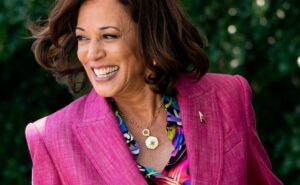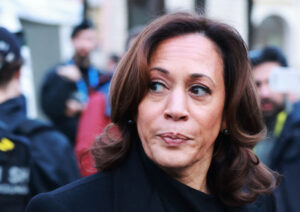In 2016, mainstream analysts were virtually certain that Donald Trump would not win the GOP nomination. Then, when he did, they claimed that it was nearly impossible that he would win the presidency. They were convinced they were able to see the future: a destiny where Democrats would indefinitely enjoy decisive electoral majorities. We know how that turned out.
These days, people are much more alive to the possibility that conventional wisdom might not apply to highly unconventional cases. This is good because, in many respects, the 2024 cycle is far more unusual than 2016.
This was true even when the race was still Trump versus Biden. It had been over a century since a former president last squared off against a sitting president (in 1912), and nearly 70 years since the last time two presidential candidates had a rematch. Both Trump and Biden were unprecedentedly old for presidential contenders, and other candidates were deeply unpopular. Everything, it seemed, was to play for.
However, even with Biden out of the running, this is still an extraordinarily unusual contest. Most obviously, substituting one’s candidate — as the Democrats did last month — is largely unheard of in US presidential contests. Precedents from abroad suggest that, because this is a tactic usually deployed by parties heading for certain defeat, candidate substitution typically improves a party’s performance, but not enough to change the overall outcome of the race. But sometimes — as in the case of Jacinta Ardern replacing the previous Labor Party candidate in New Zealand — it does flip the election.
It’s also unclear how to think about incumbency in this cycle. As a result of various psychological tendencies, incumbents are often strongly advantaged in electoral contests. However, this benefit does not seem to transfer to vice presidents or other chosen successors. In this race, then, Kamala Harris is not an incumbent.
But might Trump be? It’s hard to know. In previous cases where former presidents (Grover Cleveland, Teddy Roosevelt) have run for re-election after a spell out of the White House, they were running against direct incumbents — currently sitting presidents — so the advantage of their presidential experience likely washed out. In this case, Trump is running against someone who has never served in this role. Hence, if there is an incumbency advantage this cycle, it likely favours him. But Trump was the direct incumbent in 2020, and he lost anyway (the only time since 1980 that the winning party failed to stay in power for at least eight years).
Moreover, beyond the idiosyncratic structural nature of the race, both Trump and Harris are highly unusual contenders. On the Republican side of the equation, the candidate is a twice-impeached former president who recently survived an assassination attempt. Since he was last on the ballot, Trump has also been convicted of multiple felonies with myriad other criminal and civil cases pending. The last time a major presidential candidate was in a remotely similar position of legal jeopardy was when socialist candidate Eugene Debs ran for office from prison during the 1920 election.
With respect to the Democrats, Harris’s candidacy marks only the second time in US history that a woman or a non-white person was at the top of the ticket for one of the top two political parties. It also marks the first time in more than a half-century that a presidential candidate who was eligible to run for re-election decided not to stand.
For now, this seems to be paying off. And it’s now suddenly the case that Trump — who previously oriented his whole strategy around exacerbating voter concerns about age and fitness — is the oldest candidate to run for the presidency. His opponent is roughly two decades younger than him; his running mate is half his age. Voters are now deeply concerned about Trump’s age, health, mental acuity and viability in office — concerns that are especially salient because his VP choice is one of the least popular picks in modern history. No one wants J.D. Vance to be President. Even Trump isn’t prepared to say his running mate is well-suited for the job.
Moreover, Harris’s history as a prosecutor, which was a deep liability in the 2020 Democratic primaries, seems advantageous in the current cycle, in which the “Great Awokening” of Democratic voters has run its course, public concern about crime and safety is high, and her opponent has recently been convicted of multiple felonies. For better or worse, Kamala can lean into security or “law and order” frames with abandon. She’s already been piloting this with great success, declaring that she has dealt with “predators who abused women, fraudsters who ripped off consumers, cheaters who broke the rules for their own gain”. In that same speech, she continued: “Hear me when I say I know Donald Trump’s type.”
However, despite Harris’s obvious virtues, her appointment also entails significant risks and liabilities. For one thing, much like Biden and Trump, her approval ratings and general favourability have been consistently underwater. And for another, few have forgotten her dismal performance in the 2020 primaries. And as well as being vulnerable to accusations of being extremely liberal (but also, insufficiently Left), her political instincts leave much to be desired. For instance, despite her tough prosecution of non-violent drug offenders, Harris has previously joked about her own history of pot use. In the process, she tied her consumption of illegal drugs to her Jamaican ethnic background, leading her own father to publicly condemn her for trafficking in stereotypes. She’s also famous for serving up incoherent word salads when speaking without a script.
The biggest wildcard for Harris’s nascent campaign, though, is her leadership style. Over her time in California politics, Harris earned a reputation of being a cruel boss whose organisations operated in a dysfunctional way and with unusually high turnover. In one striking instance, she pushed an employee who resigned to sign an NDA agreement in order to receive a severance package, despite having been publicly opposed to this practice. Her tenure as vice president has also been marred by vicious struggles among her staff, alleged mistreatment of employees, and extraordinary levels of staff attrition — over the past four years, she’s had markedly higher levels of turnover than Trump did. The problems have been so persistent and severe that the White House has even been forced to publicly address them. Among beltway insiders, this chronic dysfunction has sown doubts about Kamala’s ability to successfully spearhead the Democrats’ 2024 presidential campaign, or to effectively govern should she win.
And yet, so far, Harris has benefitted from Trump’s lack of substantive knowledge about her background, positions and liabilities. Rather than focusing on any of the genuine weaknesses described above, he’s tried to portray Harris as unintelligent, weak, and not black enough. Other Republicans have called her a DEI hire; J.D. Vance, meanwhile, has previously referred to her as a “childless cat lady”.
But these kinds of attacks are unlikely to stick. In fact, they echo precisely the kind of thing that has been alienating prospective Democratic voters from their party over the past decade: a focus on niche identity and “very online” discourses over the bread-and-butter issues that voters actually care about. Incidentally, these lines of attack also exemplify what many have consistently found unpalatable about the Republican nominee: his pettiness, his lack of basic decency, his inability to conduct himself in a manner befitting his office. No one should underestimate Trump’s ability to snatch a defeat from the jaws of victory.
It is also the case, though, that Harris probably won’t be able to rely on her opponents’ incompetence forever. It’s not enough for her to coast on the current positive shifts. If she wants to win, she needs to continue making gains.
At present, prediction markets continue to project Trump as the likely winner in November. Nate Silver’s electoral forecasting model (which outperforms markets) paints the race as essentially a toss-up. One thing that’s critical to note about these probabilistic portraits is that, while they aren’t terrible for Harris, they aren’t spectacular either — and these may be her finest moments in the entire electoral cycle.
In the coming months, Republicans will likely sharpen their attacks and recalibrate their campaign around their new opponent. While she’ll probably receive a boost once she picks her running mate this week, the honeymoon phase of Harris’s candidacy will likely taper off among voters (and in polls) after the Democratic National Convention. Meanwhile, Harris’s organisational efficacy will be acutely tested as a likely brutal campaign wears on — even as challenging world events, like the ongoing Israeli offensive in Gaza, lead people to pay closer attention to her leadership style.
All of which is to say: no one should take the Democrats’ current gains in the polls as evidence that the election is in the bag. The presidential race will likely continue to be volatile all the way to the finish line. Indeed, if the aftermath of the 2020 election was any indication, there could be chaos all the way through Inauguration Day. We’re condemned to live in interesting times. Adjust your expectations accordingly.
Disclaimer
Some of the posts we share are controversial and we do not necessarily agree with them in the whole extend. Sometimes we agree with the content or part of it but we do not agree with the narration or language. Nevertheless we find them somehow interesting, valuable and/or informative or we share them, because we strongly believe in freedom of speech, free press and journalism. We strongly encourage you to have a critical approach to all the content, do your own research and analysis to build your own opinion.
We would be glad to have your feedback.
Source: UnHerd Read the original article here: https://unherd.com/



